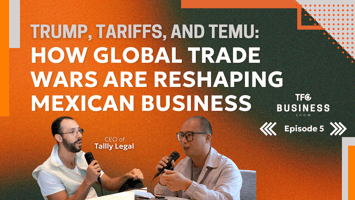Tariff Crisis 2025: Singapore Activates Economic Resilience Task Force
In April 2025, the global trade landscape was shaken by sweeping tariffs imposed by the United States, sparking fears of a new era of protectionism and economic fragmentation.
Singapore, as an export-reliant economy, finds itself at the epicenter of these disruptions. With a GDP forecast of 0–2% and rising recession risks, the government has quickly mobilised the Economic Resilience Task Force (ERTF) to protect businesses, workers, and the economy.
Dive into the implications of the US tariffs on Singapore, outline the task force’s three-pronged strategy, and provide actionable insights for businesses and individuals navigating this turbulent period.

Immediate Global Trade Disruptions
1. US Tariff Landscape
- Baseline Tariffs: A 10% tariff was imposed on most countries, with higher reciprocal tariffs deferred by 90 days—except for China.
- US-China Trade War Escalation:
- Chinese goods to the US face a staggering 145% tariff, while US goods to China are hit with a 125% tariff.
- Over US$600 billion in trade is at risk, creating ripple effects across global supply chains.
2. Impact on Singapore
- Export Challenges:
- Firms linked to China or US-facing markets report canceled or deferred orders.
- Singapore’s reliance on external trade makes it particularly vulnerable.
- Sector-Specific Risks:
- Semiconductors and pharmaceuticals identified as potential next targets for tariffs.
| Tariff Impact | Details |
|---|---|
| Baseline Tariff | 10% on most countries |
| US-China Tariffs | 145% on Chinese goods, 125% on US goods |
| Trade Value at Risk | >US$600 billion |
Risks to Singapore’s Economy
1. Downgraded Growth Forecast
- Singapore’s 2025 GDP growth forecast has been revised to 0–2%, reflecting the drag from reduced global demand.
- Recession Risk: Economists warn that a recession cannot be ruled out if global tensions escalate further.
2. Broader Economic Implications
- Rising protectionism undermines the Most Favored Nation (MFN) principle, leaving smaller economies like Singapore with diminished bargaining power.
- Global supply chains are being reshaped, forcing firms to prioritize resilience over cost-efficiency.
| Risk Factor | Impact |
|---|---|
| GDP Forecast | Revised to 0–2% |
| Recession Risk | Cannot be ruled out |
| Supply Chain Fragmentation | Higher costs, slower operations |
Singapore’s Response: The Economic Resilience Task Force
The ERTF, led by Deputy Prime Minister Gan Kim Yong, includes cabinet members, the Singapore Business Federation (SBF), the Singapore National Employers Federation (SNEF), and NTUC (unions).
Its mission? To mitigate immediate impacts and build long-term resilience through three key workstreams:
1. Sensemaking & Communication
- Objective: Understand real-time business impacts and disseminate critical information.
- Actions:
- Develop FAQs, dashboards, and media briefings to keep stakeholders informed.
- Led by Minister Josephine Teo and Minion (proxy: Mark Lee).
2. Immediate Business & Worker Support
- Focus Areas:
- Monitor sectors most affected, such as manufacturing and logistics.
- Provide targeted support for vulnerable groups, including fresh graduates and mature workers.
- Tools: Leverage Budget 2025 schemes like SkillsFuture credits and trade loans.
- Leadership: SNEF, NTUC, and relevant ministries.
3. Strategic Medium-to-Long Term Planning
- Vision: Reshape supply chains, identify new markets, and maintain Singapore’s status as a global hub.
- Key Initiatives:
- Strengthen air, sea, and financial connectivity.
- Encourage enterprise transformation through innovation grants.
- Leadership: Ministers Desmond Lee and Chee Hong Tat.
On-the-Ground Sentiment
1. Business Sentiment
- Survey Results (SBF/C40):
- Investment delays and canceled contracts are widespread.
- Exporters are opting to absorb penalties rather than pay steep tariffs.
2. Worker Sentiment
- NTUC Poll:
- 70% of union leaders are concerned about job security.
- Reports of wage freezes, hiring freezes, and retrenchments are rising.
- Special attention is being paid to Professionals, Managers, Executives, and Technicians (PMETs) and upcoming graduates.
| Sentiment Metric | Details |
|---|---|
| Business Concerns | Canceled orders, investment delays |
| Worker Concerns | Wage freezes, hiring freezes, layoffs |
| Vulnerable Groups | PMETs, fresh grads |
Engagement & Outreach
The ERTF is actively engaging stakeholders through:
- Industry Forums: Organised by SBF to help firms navigate tariffs and trade compliance.
- Sector-Specific Conversations: Targeting procurement, marketing, and other functions.
- Tripartite Collaboration: Ensuring alignment between businesses, unions, and the government.
Fiscal Readiness: Targeted Support
- Government Commitment:
- Will draw on past reserves if necessary, similar to measures taken during the COVID-19 pandemic.
- Emphasis on targeted, sustainable support rather than indiscriminate cash injections.
- New Schemes: Potential creation of tailored programs based on feedback and evolving conditions.
External Engagements: Building Alliances
1. Bilateral Efforts
- Engagement with the US: Highlighting Singapore’s unique economic structure and vulnerabilities as a small state.
2. Regional Cooperation
- ASEAN Focus: Strengthening intra-ASEAN trade agreements.
- Global Partnerships: Pursuing collaborations with the EU, GCC, and CPTPP partners.
Long-Term Transformation Vision
To ensure Singapore remains resilient in a fragmented global trade order, the task force is guided by Desmond Lee’s Five Focus Areas:
- Market Diversification: Expanding trade links beyond traditional partners.
- Hub Resilience: Maintaining Singapore’s role as a global trade and finance hub.
- Attractiveness to Talent/Investors: Enhancing policies to draw global talent and capital.
- Workforce Transformation: Upskilling workers to adapt to changing industries.
- International Economic Partnerships: Strengthening alliances to counterbalance protectionism.
Staying Open, Fast, and United
The US tariffs have created unprecedented challenges for Singapore, but they also present an opportunity to strengthen the nation’s economic resilience.
By staying open to global opportunities, fast in adapting to change, and united in tripartite collaboration, Singapore can weather this storm and emerge stronger.
For businesses and individuals, the key takeaway is clear: Stay informed, leverage available support schemes, and focus on transformation.
Together, we can navigate these uncertain times and build a more resilient future.
Let us know what you think about this topic, and what do you want to hear next.
You can now be our community contributor and make a pitch to have your favourite personality be on our show.
Join our community group and drop us your insights on this topic.

-3.png?width=50&name=Square%20(2)-3.png)











Let us know what you think of this post